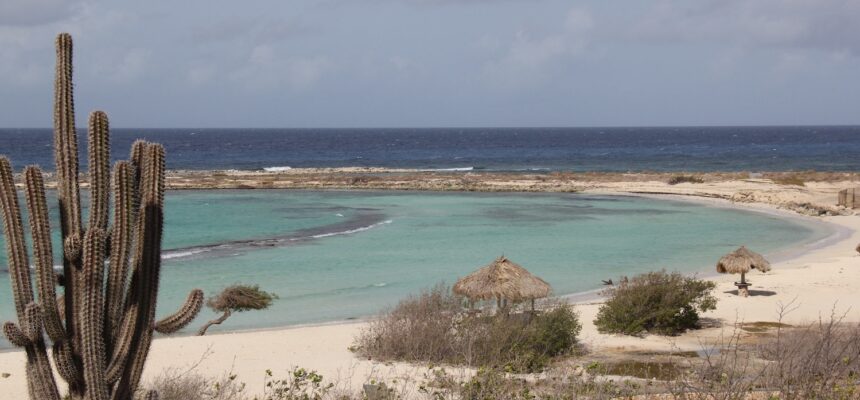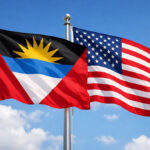High-level government officials and technical experts from across the Wider Caribbean Region concluded the 18th Meeting of the Contracting Parties (COP18) to the Cartagena Convention on Thursday, October 16, 2025, in Kingston, Jamaica, by adopting a decisive new strategic roadmap and workplan aimed at protecting the Caribbean Sea—the economic lifeblood of the region from the compounding threats of marine pollution and marine biodiversity loss.
The pivotal four-day conference, hosted by the Government of Jamaica and the United Nations Environment Programme (UNEP) Cartagena Convention Secretariat with the significant support of the EU ACP MEA III Programme at the Jamaica Pegasus Hotel, was hailed as a major milestone. It marked the first time that all three major Intergovernmental Meetings of the Cartagena Convention and Oil Spills Protocol, the Land-Based Sources of Marine Pollution (LBS) Protocol, and the Specially Protected Areas and Wildlife (SPAW) Protocol convened concurrently.
Over 80 delegates, representing Contracting and Non-Contracting Parties, and observers drawn from international and regional organizations and civil society, and youth attended the hybrid summit, underscoring the broad regional and global commitment to the health of the Caribbean Sea.
Economic Security Anchored in Environmental Action
The overarching outcome of COP18 was the approval of a robust Workplan and Budget for the 2026-2027 Biennium, providing the financial and strategic framework necessary to operationalize key environmental commitments.
This blueprint directly supports the region’s collective vision for a resilient and sustainable Blue Economy, which relies fundamentally on healthy marine and coastal ecosystems to drive the tourism, fisheries, and shipping sectors.
“The decisions taken in Kingston are not merely environmental mandates; they are investments in our regional economic resilience,” said Mr. Christopher Corbin, Coordinator of the UNEP Cartagena Convention Secretariat. “We confronted some of the region’s most pressing issues impacting the Caribbean Sea, pollution, degradation of coastal and marine habits, loss of marine biodiversity, and sargassum —head-on, agreeing on a collaborative, sustainable financed strategy that translates regional commitments into tangible national actions. COP18 was a critical call to accelerate implementation and ensure the Caribbean Sea remains productive and prosperous for future generations.”
COP18 Key Highlights and Decisions
Turning the Tide on Pollution: Cleaner Lands for a Healthier Ocean (LBS Protocol)
In a significant move to tackle the visible and costly crisis of marine pollution, Contracting Parties advanced the Regional Action Plan for Marine Litter and strengthened commitments under the LBS Protocol.
Plastic Pollution & Circularity: Delegates reaffirmed their commitment to tackling solid waste and plastic pollution, emphasizing the transition to Circular Economy approaches. New guidelines and financing mechanisms will be explored to help Caribbean islands and continental countries of Central and South America reduce plastic leakage into the ocean, which directly protects tourism-critical beaches and fisheries.
Controlling Land-Based Pollution: Parties agreed to bolster measures to control pollution from land-based sources, particularly untreated domestic wastewater and nutrient run-off from agriculture. This is vital for improving water quality, which in turn safeguards the health of the region’s rapidly disappearing coral reefs.
Boosting Biodiversity Protection and Coastal Resilience (SPAW Protocol)
The meeting of the SPAW Protocol saw renewed political commitment to protecting the region’s threatened marine biodiversity.
Protected Area Expansion: The COP agreed on proposals to enhance and expand the region’s Managers Network of Specially Protected Areas and Wildlife, ensuring critical habitats like coral reefs, mangroves, and seagrass beds—which serve as essential natural flood defences—receive necessary protection and management. Notably it approved the proposal from the Kingdom of the Netherlands to include Parke Marino Aruba in the SPAW List of Protected Areas.
From Crisis to Opportunity: A United Caribbean Approach to Sargassum
Recognizing the massive influxes of Sargassum seaweed as a major threat to coastal economies and public health, the COP approved anAction Plan and Guidelines for Sargassum Management ensuring alignment with activities under SPAW and LBS Protocols. This decisive commitment provides a coordinated regional approach for monitoring, early warning systems, and, crucially, exploring the sustainable reuse and value-chain development of the seaweed.
From Pledges to Progress: Ensuring Accountability and a Sustainable Financial Future
To ensure the new workplan is successful, the COP supported crucial enabling documents. The Resource Mobilization Strategy (RMS): The COP noted the RMS, encouraging the Secretariat to use its four pillars of action to mobilize financial resources and expertise. This strategy is critical for attracting necessary funding to implement the ambitious national actions agreed upon.
Delegates also endorsed the objectives of the Knowledge Management and Communications Strategy to ensure that scientific data and best practices are effectively translated and shared with policymakers, local communities, and the wider public, strengthening awareness and public support for conservation efforts and to further drive resource mobilization efforts.
Ocean Governance: Strengthening Cooperation for a Sustainable Blue Economy
The Conference called on the Secretariat to while implementing the 2026-2027 work plan to identify synergies with the Ocean Coordination Mechanism (OCM) work programme 2025-2028. The areas of priority are marine data and information, the State of the Environment Report, the OCM knowledge hub and the development of the next Strategic Action Programme for the Caribbean Sea. The Secretariat would report on opportunities to leverage these efforts to advance the objectives of the Cartagena Convention and its protocols during COP19. It also invited Contracting Parties that are yet to sign the OCM MOU to consider signature.
Ratification of the Cartagena Convention and Its Protocols
The meeting hailed the announcements by the Government of Saint Vincent and the Grenadines of its intention to ratify the LBS Protocoland Jamaica’s commitment to imminently ratify the SPAW Protocol, pending a final legislative amendment to the Wildlife Protection Act. It also welcomed St Kitts and Nevis as new parties to the SPAW and LBS Protocols. These moves were widely celebrated as powerful examples for other Contracting Parties and a strong political will to strengthen regional ocean governance.
The meeting called upon eligible Non-Contracting Parties to the Cartagena Convention and/or its Protocols to accelerate their efforts towards ratification and request assistance from the Secretariat and/or Regional Activity Centres to assist in their national ratification processes.
A Call for Sustainable Livelihoods
According to Corbin, the conclusion of COP18 on October 16th, World Food Day, and ahead of the October 17th International Day for the Eradication of Poverty, provided a powerful thematic link to the outcomes. By protecting the Caribbean Sea, the Contracting Parties are safeguarding the foundations of food security and sustainable livelihoods for millions of coastal residents dependent on fisheries and tourism.
“This week has not only been about negotiations and documentation, but it has been about reaffirming our common purpose. Together we have once again demonstrated that the Cartagena Convention is not just a legal instrument- it is a living commitment to the health, prosperity, and security of our coastal and marine ecosystems and of the people whose lives and jobs depend upon them. I am heartened by the clear mandate that you have given us, the decisions endorsed, and the guidance offered on how best the Secretariat can support your continued national and regional implementation of the obligations of the Convention and its protocols. “stated Corbin to the Contracting Parties.
Mr. Alberto Pacheco Capella, Head of the UNEP Regional Seas Programme, commended the delegates for their hard work and dedication, noting the significance of the Convention within the broader global framework. “The success of COP18 underscores the region’s collective resolve to protect its shared natural heritage, setting a course for a more resilient, clean, and prosperous Caribbean Sea. The decisions and milestones achieved here in Kingston will resonate far beyond the Wider Caribbean. They demonstrate the power of regional collaboration in confronting some of the most severe marine challenges. I extend my sincere thanks to all participants and the Secretariat for their tireless efforts and invite delegates to continue this vital global discussion at the UNEA session in December in Kenya, where oceans and the state of the environment will remain a priority.” said Pacheco Capella.








